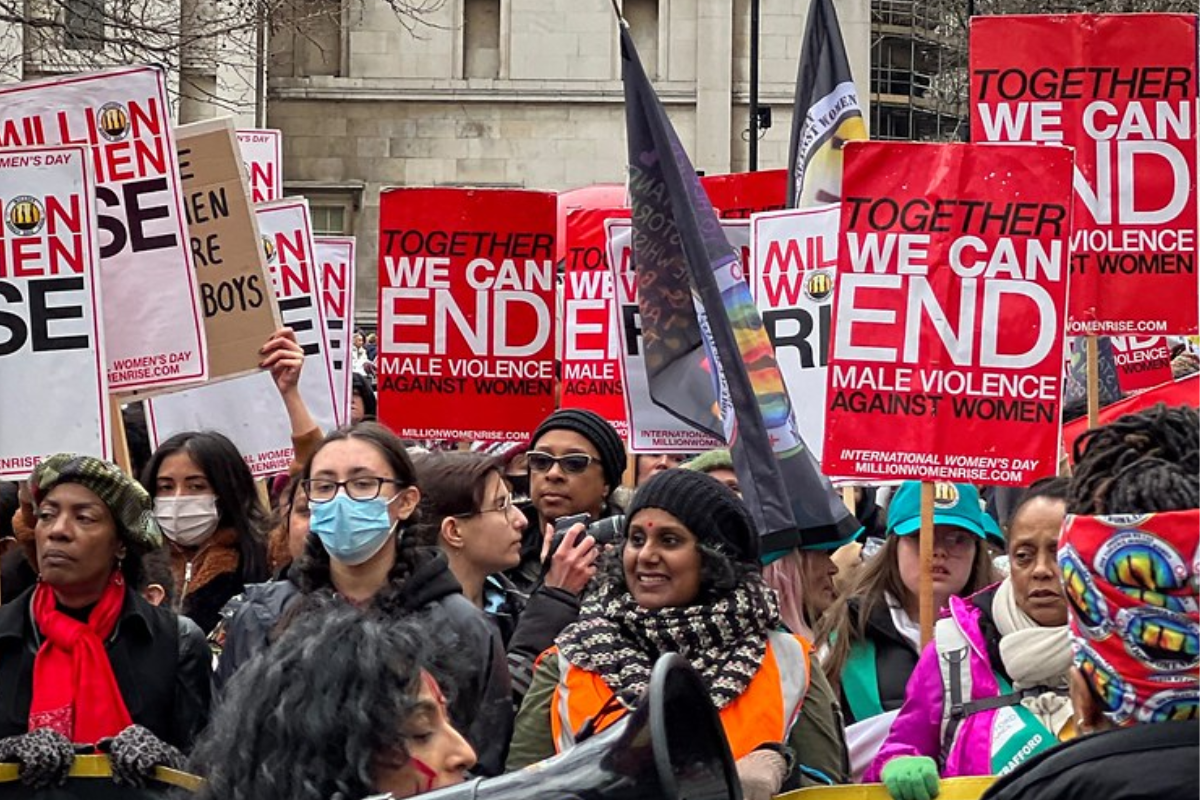This Sunday, on 8th March, is International Women’s Day. More than one-hundred years since the first International Working Women’s day in 1911, what is the situation for women in Britain in today? Seven years after the onslaught of the financial crisis, working class women remain oppressed due to their gender and exploited due to their class.
More than one-hundred years since the first International Working Women’s day on 8th March 1911, what is the situation for women in Britain in today? Seven years after the onslaught of the financial crisis, working class women remain oppressed due to their gender and exploited due to their class.
This year the bourgeois media will make much of the gender pay gap being at its lowest ever rate. However, men still earn 17.5% more than women. This is compounded by the fact that for all workers, allowing for inflation, weekly earnings fell by 1.6% from 2013-2014.
Women workers continue to do the majority of capitalism’s unpaid work – women do double the amount of housework done by men. This unequal burden is unaffected by working status. In fact some studies show that married women who earn more than their husbands actually do an even greater proportion of housework.
This continuing gender oppression is taking place during a period where workers are more exploited than ever. The TUC reports that since 2008 workers in Britain have faced the tightest squeeze on living standards in nearly one hundred years, whilst inequality has continued to rise.
Whereas media reports continue to focus on falling unemployment figures (although youth unemployment in the UK remains stagnant at 14.4%), it is important to underline the precarious nature of the jobs that people are moving into. “Zero hours” contracts are on the rise. The Office for National Statistics (ONS) now estimates that there are around 1.4 million contracts in Britain which do not offer guaranteed hours. These are coupled with the rise of “self-employment” schemes such as door sales and leafleting, which are equally precarious.
The unguaranteed and precarious nature of work particularly affects mothers (who in most instances take the main responsibility for parenting) owing to the rising costs of childcare. The Guardian reports that the average cost of sending a child under two years old to nursery for 25 hours per week is now on average £6,003 per year, a rise of around one-third in the past five years.
The crippling cost of childcare, coupled with low and unguaranteed wages, means for a section of parents it does not pay to work. ONS figures show that only around 40% of lone parents with children under five years old are in work. Many parents who do work will rely on their families, so as to alleviate the cost of full-time childcare.
Interestingly, ONS figures also show that mothers are more likely to be in work than women without children. Does this contradict the Marxist point of view that capitalism will never treat men and women equally because of the added cost of pregnancy in the capitalist’s calculations? No. It shows that working class mothers are forced to find work due to extortionate private childcare, and that the extremely casualised, part-time service sector nature of the jobs market means that for the bosses, training up new workers to replace pregnant women is cheap. Zero-hours contracts means no redundancy costs and complete flexibility when it comes to hours, terms and conditions. The question is, is this the type of world we want to live in?
For socialists, equality between the sexes cannot mean an equalisation to the bottom. To confront continuing sexual discrimination and exploitation at work, which of course feed into one another, we need to confront the capitalist system.
Under capitalism, workers are exploited in order to increase profits; gender oppression allows women to be paid less, and for housework to be carried out for free. Under a socialist, planned economy, instead of fat cats taking home increased profits, we could plan the economy and share wealth equally. This would allow for the provision of services, such as free, high-quality childcare, public restaurants and laundry services – to put a final end to inequality between the sexes.






